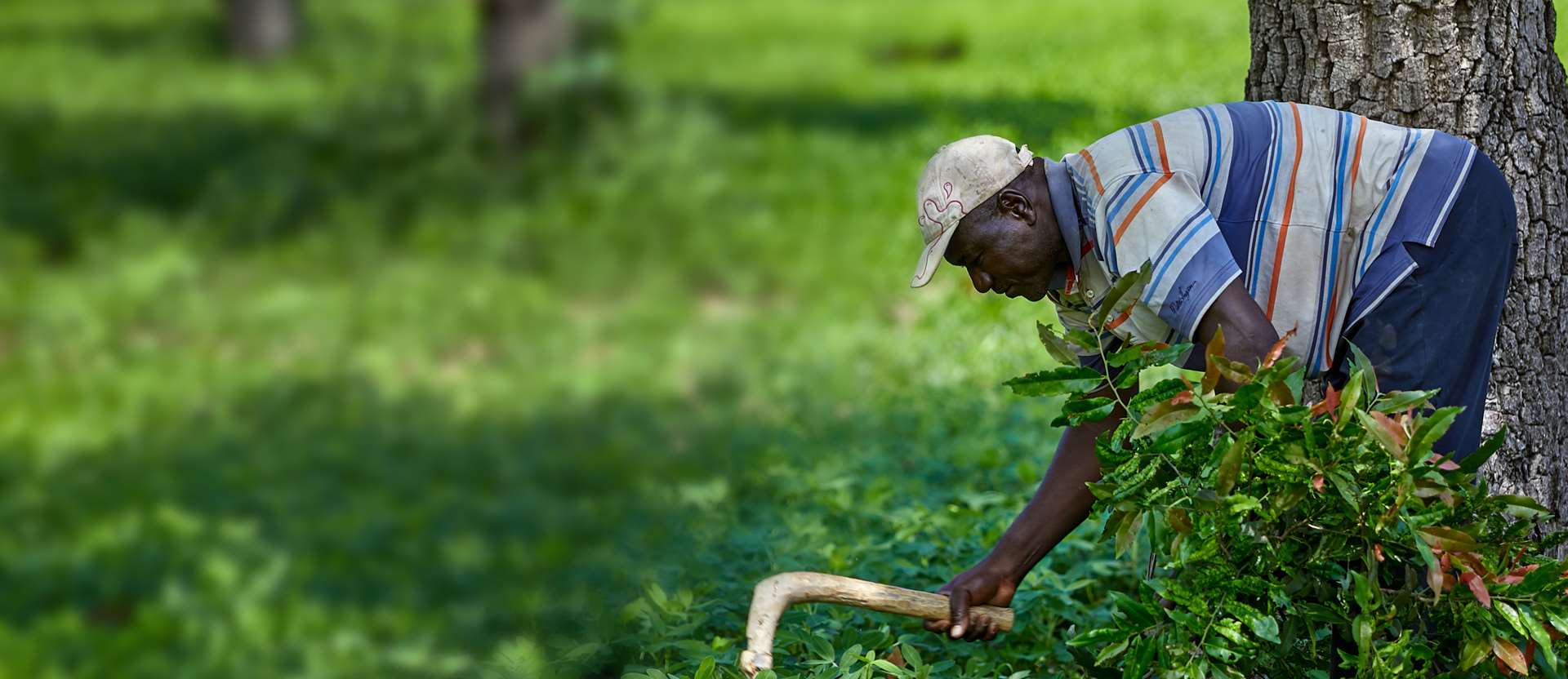
Living on the frontline of the climate crisis
How do you survive on the frontline of the climate crisis? 15th April 2020Since June 2019, Tree Aid has been working on a new project in Northern Ghana, supported by the European Union, in partnership with ActionAid Ghana. This exciting new project will develop agricultural practices that support sustainable livelihoods for rural communities whilst also conserving biodiversity, and improving resilience to climate change.
Despite the overall poverty rate in Ghana being in decline, in the northern region where we work, the rate of poverty remains shockingly high at around 50%. On top of this, the majority of workers in rural Ghana are smallholder farmers, working in an industry that is at particular risk from land degradation, the climate crisis, and environmental shocks such as floods, bushfires, and droughts.
Through this new project, we are working to support communities in Northern Ghana that are particularly vulnerable to these issues. The project, in partnership with ActionAid Ghana and URBANET, will support 12,000 farmers across 15 districts in Northern Ghana. Tree Aid will work in four of these 15 districts, supporting 3,600 people, including 3,200 marginalised women and 400 young people and individuals with disabilities.
Supporting farmers with climate-resilient farming
We will support a women’s farmer group in each of the 80 communities we are working with. By providing training for three leaders and three volunteers from each community, and encouraging them to share this training with other women farmers in their community, a total of 3,200 women will directly benefit from these skills.
Through the training, the lead farmers will learn practical information on climate-resilient farming techniques, sustainable land management, and biodiversity conservation. These skills will help farmers to be better equipped to mitigate the effects of extreme climate events such as droughts, floods, and bushfires, and reduce the communities’ vulnerability to climate change.
We will also work with local government authorities to establish a Disaster Relief Fund for farmers, which will be vital if these farmers are impacted by crop losses and damages due to floods, droughts, disease, and pests.
Learn more about how the climate crisis is affecting people in Africa, and how trees provide a 'nature-based solution'

Improving livelihoods for those most vulnerable
As well as helping individuals to manage the land better, the project also focuses on enterprise development in order to promote sustainable livelihoods. During the project, 400 people will receive training on agricultural business development and skills, such as grafting, nutritional gardening, shea butter processing, and honey extraction. This will equip them with knowledge of how to use their farms to improve their incomes.
Through training women to be leaders, providing practical farming techniques, and teaching business skills, Tree Aid can empower individuals in Northern Ghana to farm their way out of poverty.
Working together to advocate for a better future
Through the project, we will develop eight organisations that will represent women’s farmer groups and other community organisations. By participating in research, advocacy, and campaigning training and receiving support to develop an action plan, leaders of these organisations will be equipped to advocate and campaign for sustainable agriculture, decent work opportunities, and social protection for all their members. The project will also work with these organisations to increase community awareness on women’s rights and access to natural resources – particularly to fertile land for farming.
The project will also support four farmer networks who will represent these eight organisations at a district level. Through facilitating meetings between these eight organisations, farmer networks, government officials, and research institutions, the project will provide a platform for communities to negotiate policies and schemes that benefit their members.

Growing influence in Ghana
Using various channels, such as community radio stations, to raise awareness on rural farmers’ rights, entitlements and social protection schemes, we will support vulnerable groups to strengthen their voice and establish community-owned social protection and welfare schemes for farmers. This could be, for example, a Village Savings and Loans Group through which communities can often negotiate better prices for all of their members and help to save for the future.
This project is funded by the European Union via ActionAid Ghana. This publication was produced with the financial support of the European Union. Its contents are the sole responsibility of Tree Aid and do not necessarily reflect the views of the European Union.



